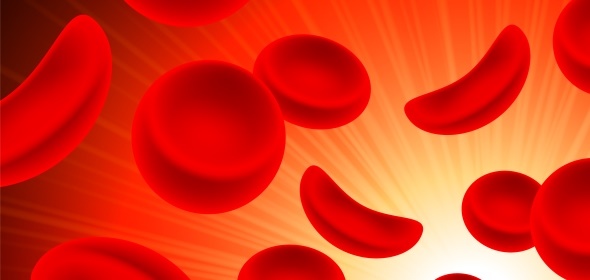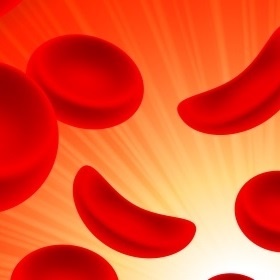

During pregnancy, women often become anaemic as the growing baby needs nutrients to thrive.
In most cases, the condition is mild and easily treated. However, more severe anaemia may develop, causing health issues.
Anaemia is a deficiency of healthy red blood cells. Red blood cells contain haemoglobin, the molecule which transports oxygen around the body. If your body lacks certain substances, including iron, Vitamin B12 and folic acid, your red blood cell production will be affected. Anaemia makes you tired and can bring on more serious symptoms too.
During pregnancy, your body produces about 50 percent more blood to support your baby’s growth. The blood is relatively diluted, with a lower concentration of red blood cells and haemoglobin. The dilution starts in about the eighth week of pregnancy and continues until the 32nd to 34th week. Haemoglobin concentration is lowest from weeks 25 to 30.
This dilution is a normal, expected process. However, if your body lacks iron or certain other nutrients, the blood may become too diluted and the haemoglobin concentration will be unhealthily low.
Causes
The most common cause of anaemia is iron deficiency, usually from low iron stores in the body before pregnancy. The growing foetus further depletes these stores.
Less often, the condition may be caused by lack of folic acid or Vitamin B12 in the diet. Blood loss from bleeding haemorrhoids (piles) or stomach ulcers may also sometimes cause anaemia.
Pregnancy can be complicated by the presence of other types of anaemia, such as sickle-cell anaemia and thalassaemias. These diseases, in which the red blood cells are abnormal, create unique problems.
Mothers need increased iron intake after the birth of the baby: iron is depleted by blood loss and by breastfeeding.
Pregnant women at particular risk include:
- Those from lower socioeconomic groups or underdeveloped regions, who may be malnourished.
- Teenagers.
- Women who experience heavy periods.
- Women who have pregnancies close together.
- Vegetarians or people on special diets, who may not consume enough iron.
- Women expecting twins or triplets.
Symptoms
As with other kinds of anaemia, the main symptoms are tiredness and a general feeling of weakness. Other symptoms may include paleness and heart palpitations. In severe cases, you may feel short of breath, even when resting. If otherwise healthy, you may not have any symptoms unless your blood haemoglobin concentration falls below 8g/dl (grams per decilitre).
If the anaemia continues for a long time, other signs of iron-deficiency anaemia may appear, like a smooth tongue and tender skin at the corners of the mouth. This is rare. In severe cases, you may experience chest pain or headaches.
Diagnosis
All pregnant women should be fully assessed at the start of their pregnancy, so that problems can be noted and treated.
Full blood count tests are usually done at the beginning of pregnancy and again in the second half. These tests will pick up low haemoglobin concentrations and certain other problems.
A ferritin blood test measures the amount of iron stored in the body. In the case of iron-deficiency anaemia, the red blood cells will also have a characteristic small, pale appearance under the microscope.
Anaemia during pregnancy is defined as a haemoglobin concentration in the blood of less than 10 g/dl. If your haemoglobin count is slightly higher, you may still be treated as anaemic because, as the pregnancy progresses, the blood will become further diluted.
Treatment
When anaemia is caused by lack of iron, it's treated with iron supplements, preferably ferrous sulphate tablets. These supplements should not be taken more than twice daily because of side effects like stomach upsets and constipation, which are problematic in pregnancy.
If the anaemia doesn't respond to iron treatment, folic acid (folate) deficiency may be the problem. This is treated with folic acid supplements. These are generally recommended for pregnant women, even without anaemia – but ask your doctor about dosage.
If the anaemia is treated and corrected, you shouldn't experience further problems.





 Publications
Publications
 Partners
Partners














